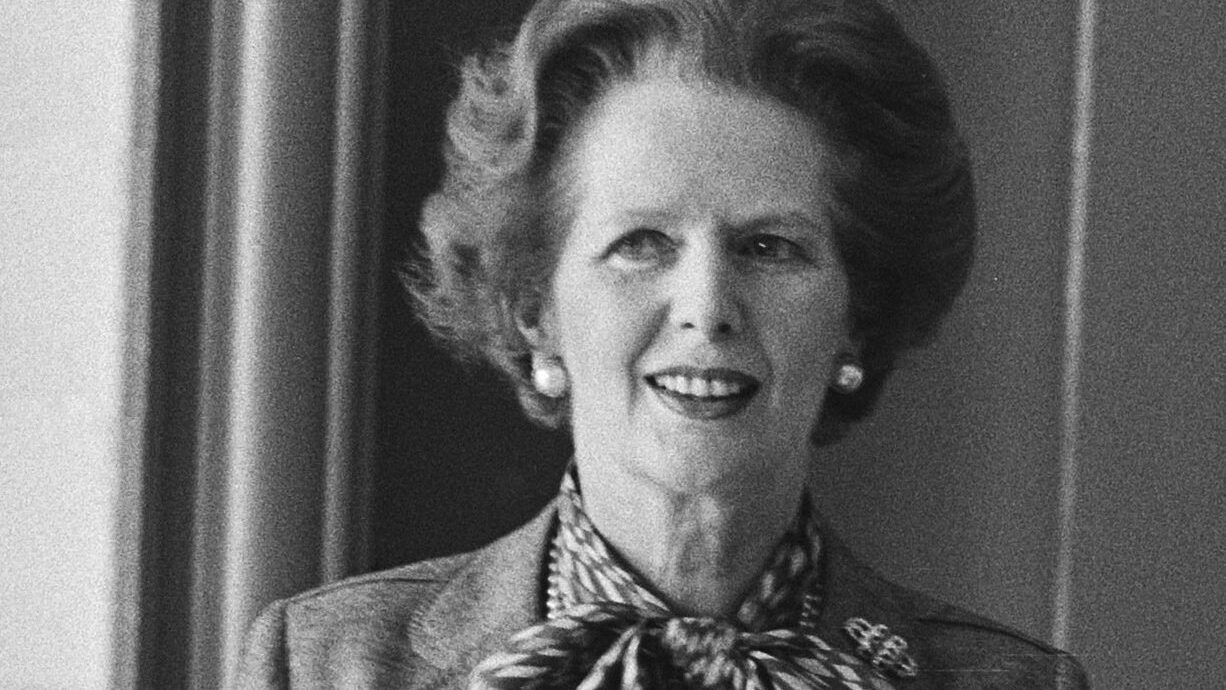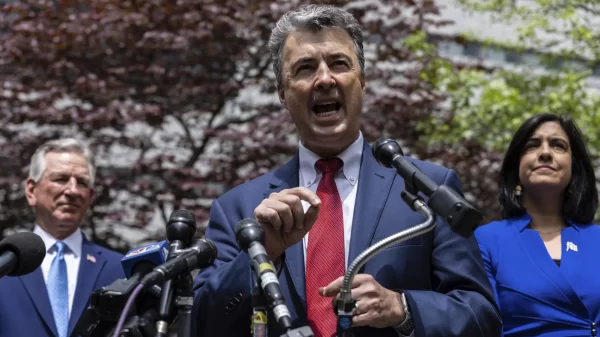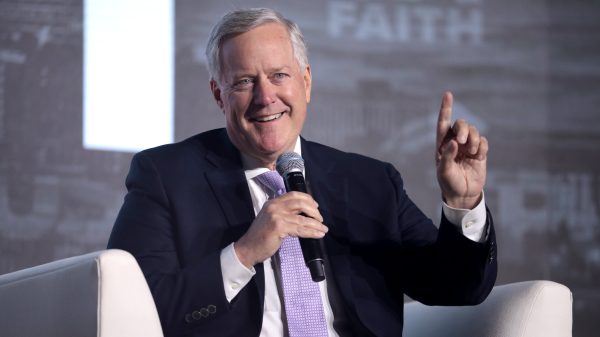Thirty years ago, this week, the longest-serving British prime minister of the 20th century resigned. Margaret Thatcher, having governed since 1979, saw her leadership challenged, but rather than continue to fight, she was gaslighted into believing she was losing her grip on her party and would lose her office in an embarrassing vote.
None of that was true.
In fact, the very men who rode to leadership positions on her coattails and hid behind her skirts during controversy allowed their greed for power to debase their loyalty to the Iron Lady. Dejected, she resigned and thus, quietly exited British politics.
Prior to Thatcher’s leadership, Britain was in decline and, by all economic measures, sliding into second rate status. Rather than control its financial destiny, the International Monetary Fund was needed to help the Empire shore up her accounts. Socialism dominated with anti-capitalist trade unions and nationalized industries weighing down any real economic growth.
But in the winter of British discontent, Thatcher emerged to lead the minority Conservative Party into the majority. For more than a decade thereafter, she was the face of the party, and even when she left the scene, the imprint of “Thatcherism” would remain a dominate political ideology.
Thatcher’s political program relied upon a simple appeal to the British sensibilities. She believed in limited government, liberty of the individual, and the rule of law. But rather than relying solely on rhetoric, she acted on her beliefs and ushered in a golden age that changed not only Britain, but the entire world. Indeed, the world she inherited in 1979 stood in stark contrast to the world in 1990. She caused the contrast.
Unlike many political leaders who espouse high minded principles, she pursued hers with what some considered reckless abandon. Thatcher took significant steps to push back the suffocating hand of state control and return the economy to a true free market. Government intervention was replaced with individual responsibility and human action.
There are five significant events revealing what Thatcher believed by how she acted. And the impact of her actions had ramifications that still affect both British and international politics.
Thatcher organized her government to firmly oppose state-sponsored terrorism and declined to allow the cloak of diplomatic immunity to cover subversive activities. When the Libyan Embassy in London was used to harbor snipers to shoot protestors and ended up killing British policewoman Yvonne Fletcher, the prime minister terminated diplomatic relations and used special forces to clear the embassy and send the terrorists masquerading as diplomats packing.
She would similarly send a large contingent of Russians home when it was clear their embassy was a cover for supporting domestic terrorists and spying on military and industrial targets. These actions rankled some in the diplomatic community who wanted her to be more deferential, but by sending a message of British resolve, she earned the respect of the world community.
Perhaps the one thing cementing Britain‘s return to power was the Falkland Island campaign. While it was only a small British outpost near Argentina, Thatcher recognized that the Argentine invasion was not simply a threat to the islanders but also a challenge to international British interests. Unwilling to concede anything, she ordered the unequivocal liberation of the islands and effectively threw down a marker that she would defend and protect British subjects and interests anywhere at any cost.
Accepting the Argentine invasion would have been the easy course, but while some in Britain were embarrassed at her saber-rattling and projection of military power, the vast majority saw her actions as patriotic and a reminder of the former greatness of the empire. After the Falkland’s victory, Thatcher’s popularity soared, and when a general election was called, she achieved a landslide victory establishing a conservative majority that lasted until 1997.
On the domestic front, Thatcher knew from the beginning of her administration that she had a dead reckoning with trade unionism, whose power had grown so strong and influential that strikes could paralyze the country. But rather than take them on directly, the wily strategist first worked to pass laws that prevented union corruption and inappropriate strikes.
Once those laws were in place, she realized that the first challenge would be with the coal miners’ union. At that time, coal miners in Britain were a larger part of a socialist network that had grown in influence because coal was so critical to energy and the economy. But a minority of the unions were not part of this network and Thatcher allied herself with them, stockpiling coal to outlast the socialists.
So, when the coal miners decided to strike, she was prepared. First with lawsuits that prevented sympathy strikes from other unions by exacting fines and then with resources to close unprofitable mines and wait until the unions were unable to hold out. The coal miners were the first step, but gradually she reduced the unions’ economic stranglehold and began to privatize state-owned industries, which made the British economy more dynamic and competitive.
With an established Church, the parameters for separation of church and state are not debated in Parliament. In fact, the prime minister was involved in approving ecclesiastical promotion. Unlike other politicians who rarely addressed religious issues directly, Thatcher had no such reticence. When she became alarmed at the liberal bent of the established Church, she found an opportunity to explain to the professional clergy exactly how she viewed their role in society.
Addressing the General Assembly of Scotland, she boldly stated, “Christianity is about spiritual redemption, not social reform.” She chastised church leaders for failing to appreciate capitalism and the spiritual benefits it provided. It is hard to imagine a political leader who would have the intestinal fortitude to attend a denominational gathering, articulate a theology and take ministers to task for in essence failing in their mission.
Her speech, known derisively as “The Epistle to the Caledonians” is readily available on the internet. Some Sunday when virtual church is off, watch Thatcher explain her version of Christianity and see her sense of faith boldly defended and publicly exhibited.
Perhaps the one thing that both defined Thatcher and also led to her resignation was her idea of Britain’s place in the European community. Her view of Europe was with an eye toward free trade and removing regulations and restrictions on the free flow of goods and services. She saw Europe not as a melting pot where states and people lose their currency and cultural identity, but, rather, as a mosaic where nations and people maintained their unique culture within a framework of collaboration centered on trade.
As the idea of a united Europe moved toward a common currency, democratic socialism and a heightened regulatory environment, Thatcher stood her ground and refused to participate. Her speech to the College of Europe at Bruges explained succinctly her concerns and her vision of developing a strong capitalist Europe. Like her speech to the Church of Scotland, this speech, too, is worth a listen as it is prescient considering the current status of Europe, Brexit and NATO.
Lady Thatcher’s political demise was ushered in by disloyal cabinet members who were willing to subjugate British hegemony to an amalgamated Europe. Nothing they would say or do could detract from her legacy. In her retirement, as she traveled to the former Warsaw Pact countries, throngs of people venerated her as the force that helped liberate them from Soviet domination.
If Thatcher was not honored in her own country, the voices of the children freed from totalitarianism offered honor enough to the Iron Lady who held to her principles, saved her country from irrelevance, and ushered in a new world order based on liberty of the individual and the rule of law.























































